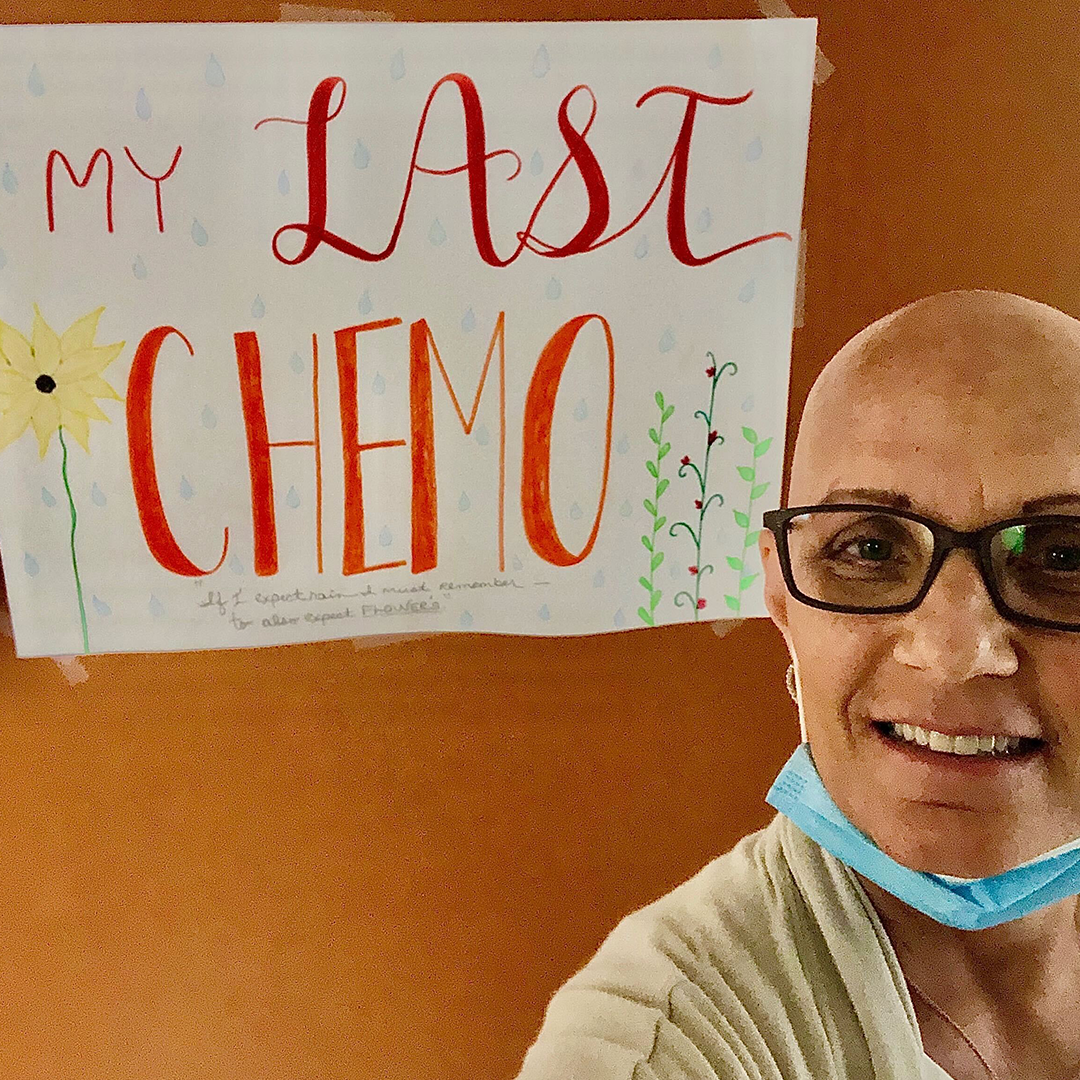


In 2020, Andrea S. was diagnosed with stage 3C ovarian cancer. The mom and former nurse was 56 years old and knew little about the disease. As a breast cancer survivor, Andrea couldn’t believe she was facing another devastating diagnosis. The experience inspired her to start a nonprofit, Harts of Teal, dedicated to raising awareness about the signs and symptoms of ovarian cancer. Here, Andrea shares the things that helped her navigate months of surgeries and chemotherapy following her diagnosis.